Sample Political Report in Summer 2024 on the Topic of Studying and Following Ho Chi Minh’s Ideology, Morality, and Style in Vietnam
Sample Political Report in Summer 2024 on the Topic of Studying and Following Ho Chi Minh’s Ideology, Morality, and Style in Vietnam
Below is a reference content for a Sample Political Report in Summer 2024 on the Topic of Studying and Following Ho Chi Minh’s Ideology, Morality, and Style in Vietnam:
View more:>>>
| Special Subject: Studying and Following Ho Chi Minh's Ideology, Ethics, and Style Part 1: Introduction Ho Chi Minh's ideology, ethics, and style are invaluable spiritual assets of the Communist Party and our people. The Party has determined that studying and following Ho Chi Minh's ideology, ethics, and style is a major, continuous, and long-term task, reflected in many documents of the Party. In the 12th National Congress of the Communist Party, it was affirmed: ... continue to promote studying and following Ho Chi Minh's ideology, ethics, and style; considering it a regular task of Party organizations, government levels, political-social organizations, localities, and units in tandem with combating political ideology degradation, ethics, lifestyle, and manifestations of self-evolution, self-transformation within the Party. The content of Ho Chi Minh's ideology, ethics, and style is very rich, expressed throughout his revolutionary legacy and life. Ho Chi Minh's ideology is a comprehensive and profound system of viewpoints on the fundamental issues of the Vietnamese revolution, the result of creatively applying and developing Marxism-Leninism to the specific conditions of our country, inheriting and developing the good traditional values of the nation, and absorbing the cultural quintessence of humanity. Part 2: Ho Chi Minh's Ideology Ho Chi Minh's ideology is the result of creatively applying Marxism-Leninism in the specific conditions of our country. Based on scientific research results and practical summaries, the 9th Congress of the Communist Party defines Ho Chi Minh’s ideology as follows: - Ideology on national liberation, class liberation, human liberation; on national independence associated with socialism; combining national strength with the strength of the times; - On the strength of the people, of the great national unity bloc; - On the people's right to mastery, building a truly people's state; on all-people national defense, building the people's armed forces; - On economic and cultural development, continuously improving the material and spiritual life of the people; on revolutionary ethics, diligence, thrift, integrity, impartiality; - On caring for and nurturing the next revolutionary generation; - On building a clean, strong Communist Party, where cadres and Party members not only lead but also serve the people with loyalty ... Ho Chi Minh's ideology on practicing democracy is reflected in building and perfecting broad democratic policies. Right after establishing the Democratic Republic of Vietnam, President Ho Chi Minh advocated for the construction and issuance of a new Constitution. The 1946 Constitution laid the legal foundation for exercising the people's power. This is clearly evidenced in Chapter II of the 1946 Constitution, which includes 18 articles stipulating citizens' obligations and rights. Article 6 of the Constitution states: “All state agencies must rely on the people, closely connect with the people, listen to and be subject to the people's surveillance. All state agency staff must be loyal to the people's democratic policies, adhere to the Constitution and laws, and wholeheartedly serve the people.” .... Part 3: Ho Chi Minh's Ethics President Ho Chi Minh repeatedly affirmed that a revolutionary must have revolutionary ethics as the foundation; without it, even the most talented will fail to lead the people. Revolutionary ethics helps individuals withstand all trials. He wrote: “With revolutionary ethics, when facing difficulties, hardships, and failures, one will not be afraid, timid, or yield”; “when encountering favorable conditions and success, one still maintains a spirit of hardships, simplicity, humility, caring for the tasks' completion rather than personal enjoyment; not boastful, not bureaucratic, not arrogant, not corrupt.” In Ho Chi Minh's view, personality structure includes two aspects: ethics and talent, qualities and capabilities, integrity and proficiency, wherein He defines ethics, integrity, as roots, as the foundation. However, this does not mean absolutizing ethics while downplaying talent. Ethics and talent must come together; one cannot exist without the other. If there is ethics but no talent, it is like a kind-hearted person who does not harm but also does not benefit. The basic qualities of revolutionary ethics include: - Loyal to the country, dutiful to the people - Loving others, living with meaning and affection - Diligence, thrift, integrity, impartiality - Pure international spirit ... Part 4: Ho Chi Minh's Style Thinking Style Scientific, revolutionary, and modern thinking style: Approaching issues scientifically, corresponding to practical needs and historical conditions, He surpassed previous patriotic scholars, quickly recognizing the issues of his era. The new thinking style led Nguyen Ai Quoc to decide to go to the West to find a way to save the country. Independent, self-reliant, creative thinking style: a non-dogmatic, non-stereotyped style, not borrowing from others, avoiding old ways and paths, independently exploring, thinking, thoroughly understanding the essence of matters to find the truth, suitable for practical needs and conditions. Working Style Throughout his life, President Ho Chi Minh was always close to the people, thereby understanding their minds and wishes. His consistent thought and action were prioritizing and trusting the people. Because of valuing and trusting the people, he dedicated his service to them. President Ho Chi Minh always trusted the people's capabilities and strength. His mass style originated from his thought: "The country is based on the people". Expression Style Ho Chi Minh’s expression style is best reflected in his speech and writing. Ho Chi Minh was a politician, propagandist, journalist, poet, writer,... who authored many works in various genres such as journalism, sketches, poetry, stories, drama, political essays,... Depending on the purpose, audience, and genre, he had different writing styles, guided by his criteria: For whom to write? Why to write... Thus, he had a very diverse and rich expression style: erudite, academic with Western politicians; concise, “between the lines” with scholars; plain, simple with less literate citizens... Lifestyle In his lifestyle, President Ho Chi Minh was extremely simple, noble, and frugal in material life, yet exceptionally rich in moral and spiritual values; brimming with love for people, life, nature, and beauty... with the sensitive, emotional responses of an artist's soul |
What are Principles for Regular Training of Teachers in Vietnam?
Based on the provisions of Article 4 of the Regulations issued together with Circular 19/2019/TT-BGDDT, the principles for regular teacher training must be ensured as follows:
- Meet the requirements of the academic year tasks, professional standards, job positions, and development needs of educational institutions, localities, and the sector.
- Ensure to highlight self-study, continuous training at educational institutions, and select training programs according to the professional standards and job positions of teachers and administrators.
- Implement assignment, decentralization, and coordination mechanisms in organizing regular training.
- Ensure practicality, quality, transparency, and effectiveness.
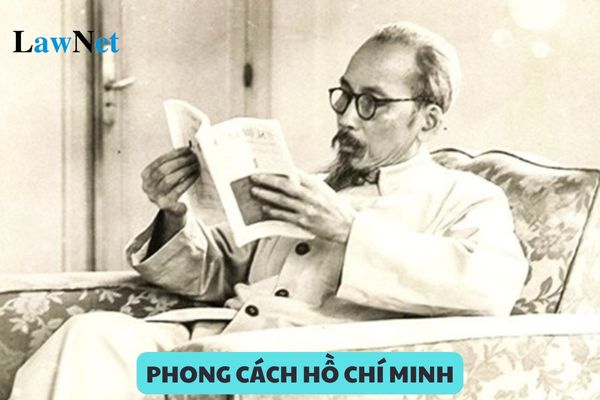
Sample Political Report in Summer 2024 on the Topic of Studying and Following Ho Chi Minh’s Ideology, Morality, and Style in Vietnam (Internet image)
What are responsibilities of Units under the Ministry of Education and Training in Regular Teacher Training in Vietnam?
According to Article 14 of the Regulations issued together with Circular 19/2019/TT-BGDDT, the units under the Ministry of Education and Training have the following responsibilities in regular teacher training:
- Department of Teachers and Educational Managers:
+ Preside, cooperate with functional units under the Ministry: Issue directives related to teacher and manager regular training work; organize inspections of teacher and manager regular training work nationwide; periodically organize preliminary and final summaries of the regular teacher training work, managers;
+ Perform other related tasks as assigned by the Minister of Education and Training.
- The Ministry Inspectorate presides, cooperates with the Department of Teachers and Educational Managers and related functional units under the Ministry to inspect regular training activities.
- Other units under the Ministry: Cooperate in inspecting and ensuring the quality and effectiveness of regular training activities.
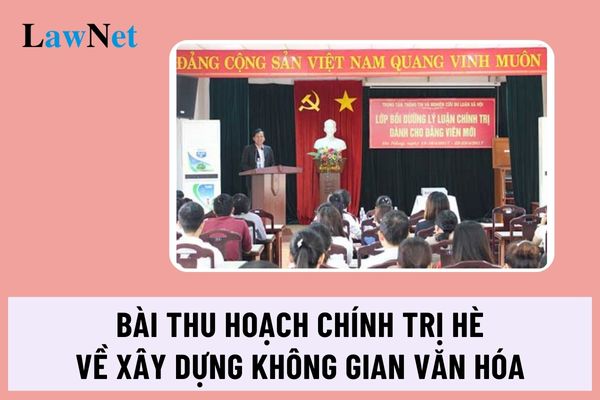
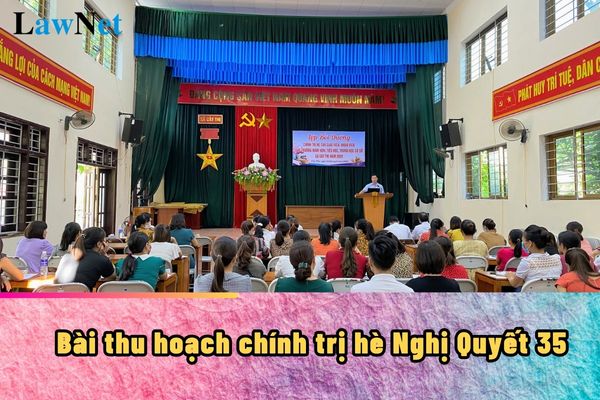
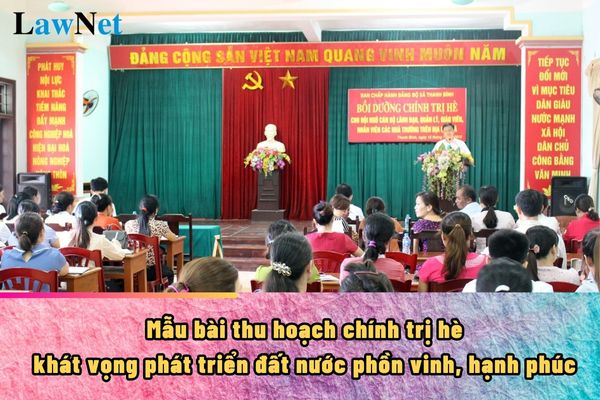
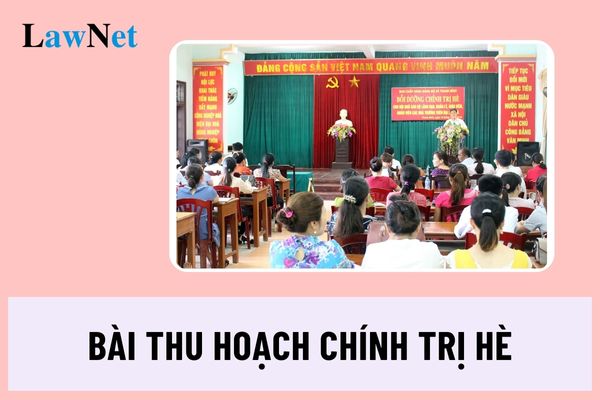
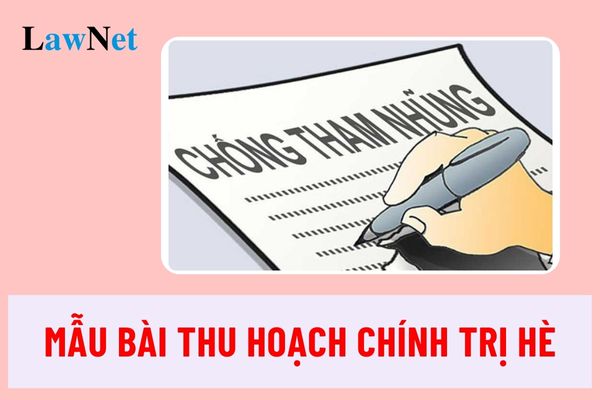

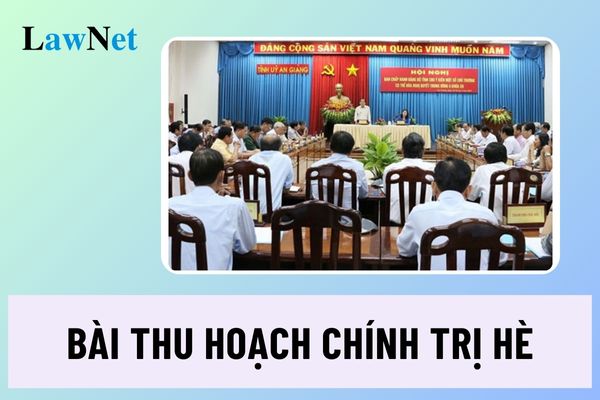
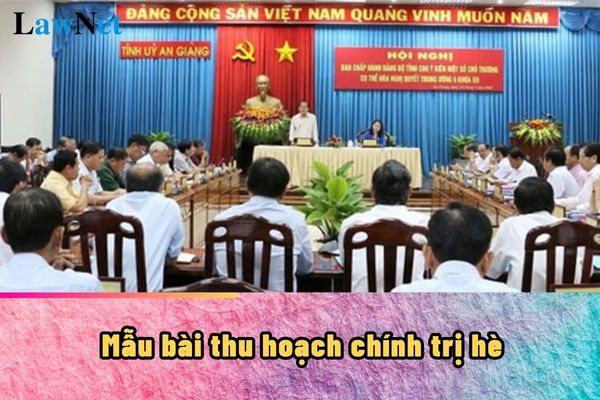

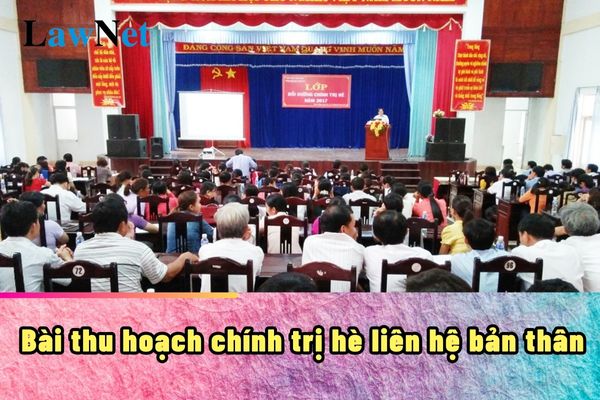
- Vietnam: What is the sample outline of an essay on the analysis of expressions of national spirit in the Poem "Việt Bắc" for 12th-grade students? What patriotic qualities are required for 12th-grade students?
- Vietnam: What are your thoughts on the Poem "Tiếng ru" by To Huu? How many lessons are there in the 12th-grade Literature curriculum per year?
- What are the sample essays describing your grandfather for 5th-grade students in Vietnam? What are the assessment criteria for 5th-grade students in 2024?
- Vietnam: What are the sample social argumentative essays on social media etiquette for 10th-grade students? What Vietnamese knowledge do 10th-grade students learn?
- Vietnam: Why is the French Bourgeois Revolution considered the most thorough one? What learning outcomes are required for 11th-grade students after studying the bourgeois revolution?
- Vietnam: What is the atmosphere? What is the grade at which students are required to master the knowledge of the atmosphere in the History and Geography curriculum?
- Vietnam: Why does the phenomenon of day and night alternation occur on Earth? What is the grade at which students learn about the phenomenon of day and night alternation on Earth?
- What is the newest report template on distance education at the higher education level in Vietnam?
- Vietnam: What are the shortest sample expositions on Ba Den Mountain for 9th-grade students? What learning outcomes are required for the writing process in the 9th-grade Literature curriculum?
- In Vietnam, what does local time mean? What is the grade at which local time is taught in the History and Geography curriculum?

